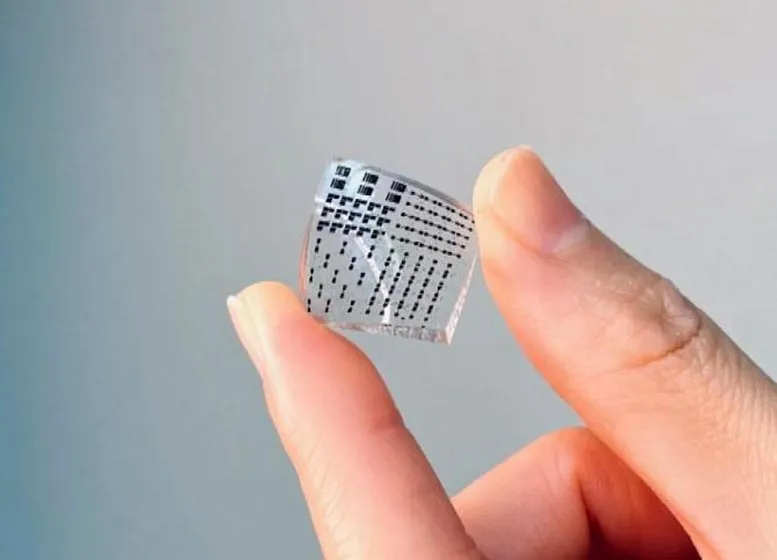WEB DESK, July 3(ABC): A material that mimics human skin in strength, stretchability and sensitivity could be used to collect biological data in real time. Electronic skin, or e-skin, may play an important role in next-generation prosthetics, personalized medicine, soft robotics and artificial intelligence.
“The ideal e-skin will mimic the many natural functions of human skin, such as sensing temperature and touch, accurately and in real time,” says KAUST postdoc Yichen Cai. However, making suitably flexible electronics that can perform such delicate tasks while also enduring the bumps and scrapes of everyday life is challenging, and each material involved must be carefully engineered.
Most e-skins are made by layering an active nanomaterial (the sensor) on a stretchy surface that attaches to human skin. However, the connection between these layers is often too weak, which reduces the durability and sensitivity of the material; alternatively, if it is too strong, flexibility becomes limited, making it more likely to crack and break the circuit.
“The landscape of skin electronics keeps shifting at a spectacular pace,” says Cai. “The emergence of 2D sensors has accelerated efforts to integrate these atomically thin, mechanically strong materials into functional, durable artificial skins.”
A team led by Cai and colleague Jie Shen has now created a durable e-skin using a hydrogel reinforced with silica nanoparticles as a strong and stretchy substrate and a 2D titanium carbide MXene as the sensing layer, bound together with highly conductive nanowires.

























